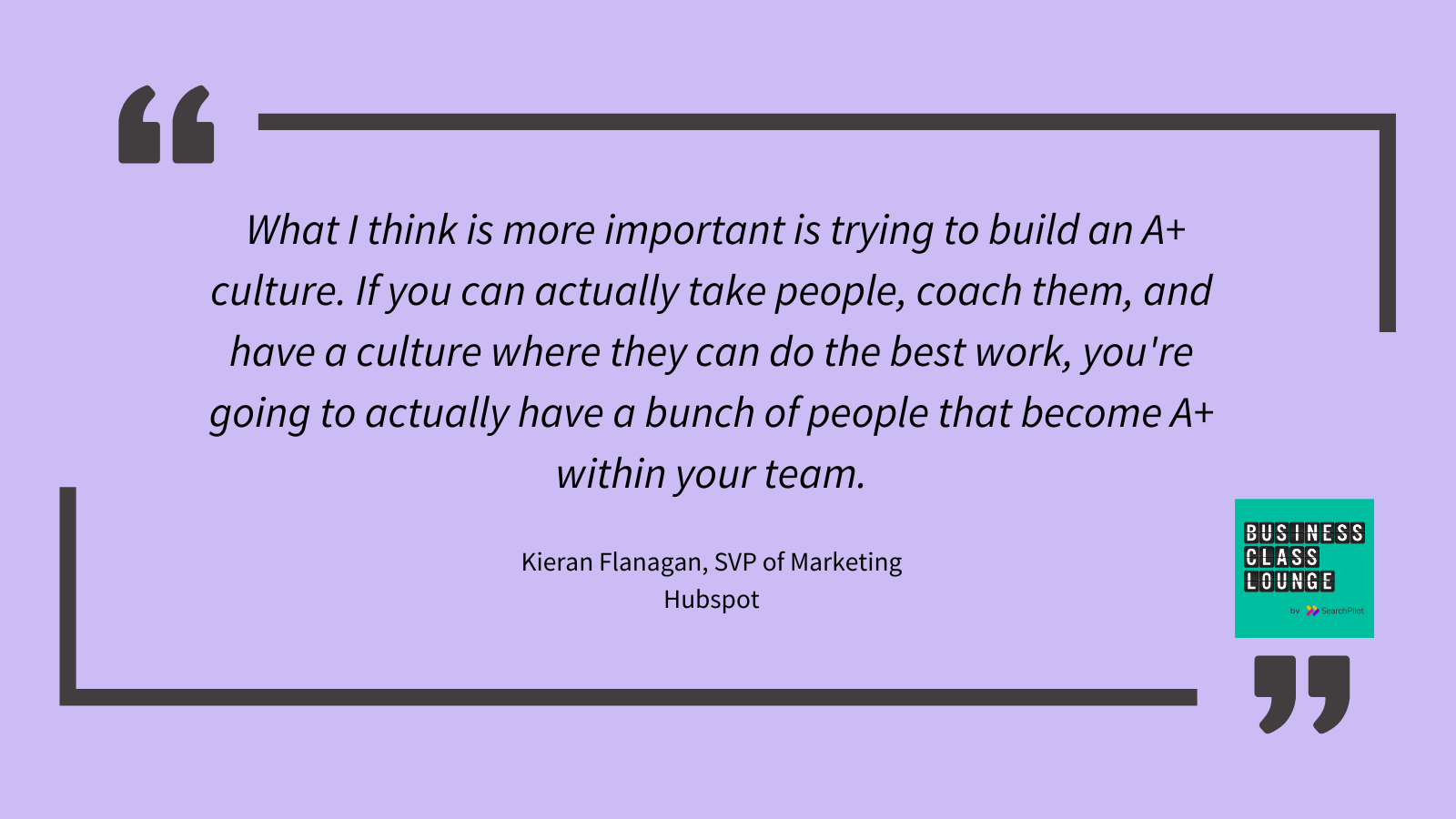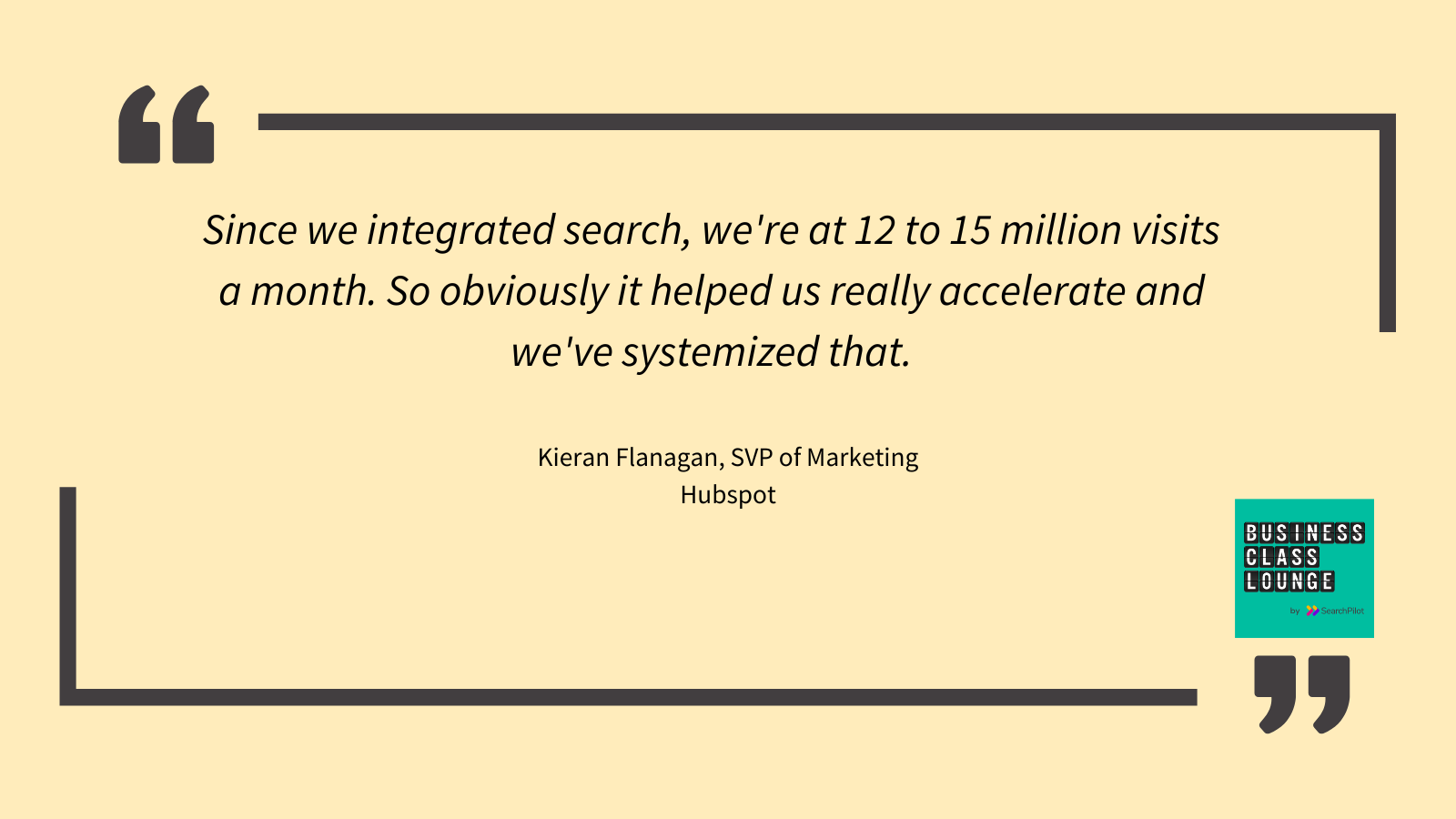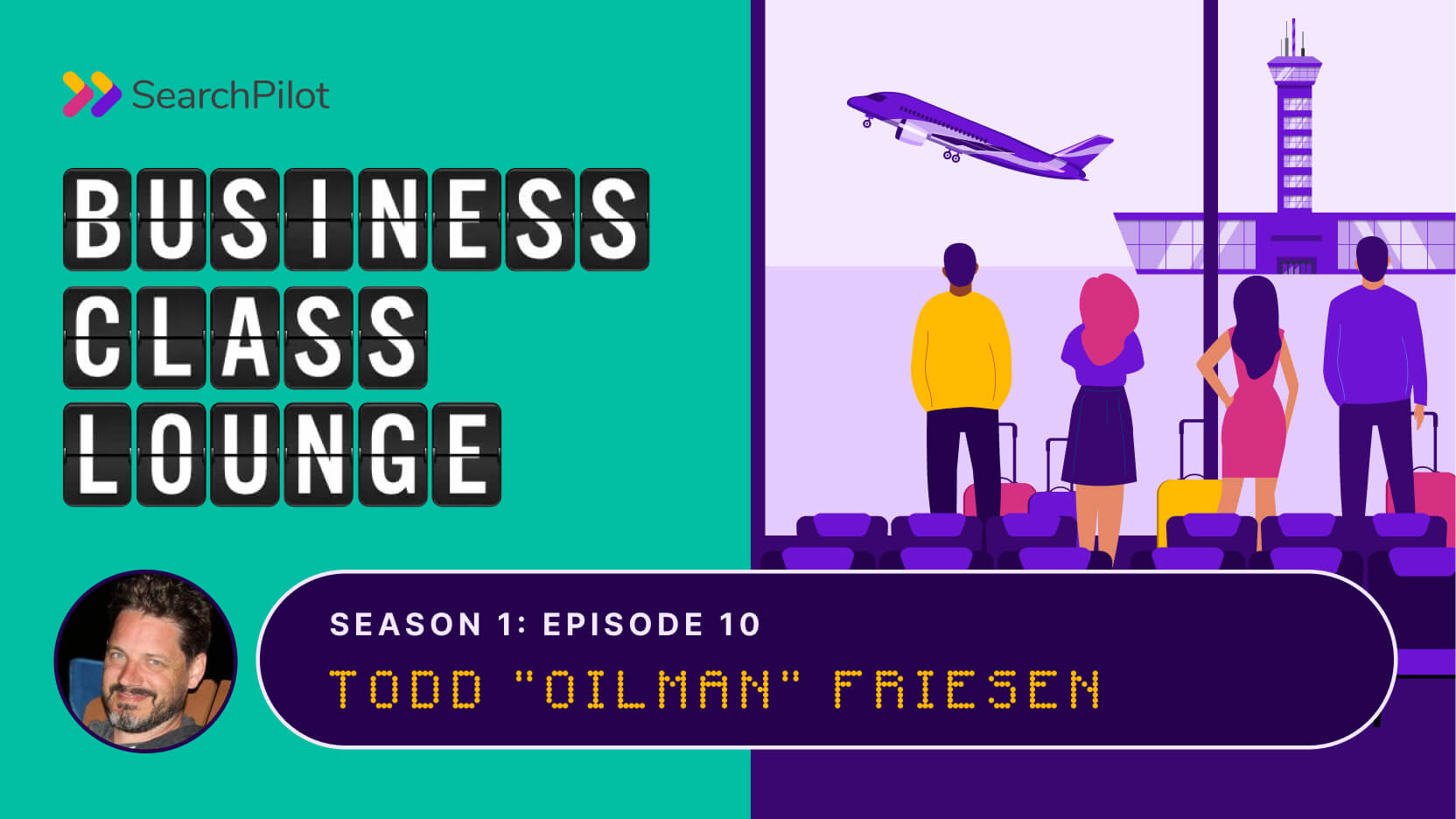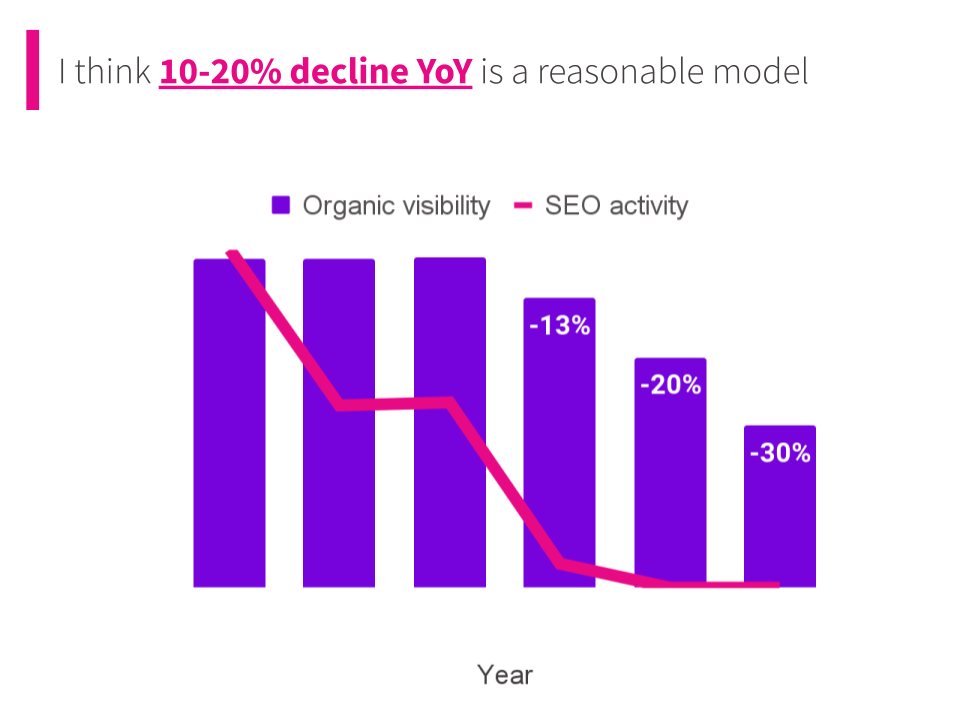Here’s the first episode of the Business Class Lounge, where I interviewed Kieran Flanagan, SVP of Marketing at HubSpot.
Kieran started out in SEO, and has deep channel expertise. At HubSpot he has done many things including being part of founding HubSpot’s international business and at times leading a 200-person strong team. He’s the Senior Vice President of marketing and he’s exactly the kind of person we want to be bringing on this podcast because he has everything from detailed hands-on experience to stories of executive leadership and the understanding of what it takes to report right to the top of a large and successful organisation.
Below is the abridged transcript of the episode where I want to share some of our discussions on leadership, SEO, and marketing so you know what to expect from this episode. If you want to go straight to listening to the full episode now, you can catch it here or wherever you get your podcasts from: Apple, Spotify, Amazon, Google, or YouTube.
What does it mean for you to move into leadership in marketing and what’s your leadership philosophy?
Kieran Flanagan (KF): Yeah, so I think over the past number of years I’ve started as a team of one then built teams. Then went back to a team of one then built teams; all actually within the same company.
What’s interesting is, you know, HubSpot’s allowed me to do a lot of different things every two to two and a half years. I went from small teams to managing over 200 people and so you have to really stretch yourself. In terms of leadership, I think one of the interesting things is people think leadership and management are the same thing and they really aren’t.
You can actually be an incredible manager and not be a really great leader, and that could be okay for certain teams or certain roles that you’re doing, and you can actually be an incredible leader and manage no people. And so for me, leadership is having a clear mission, having something that people can galvanize around.
I think for the most part, you want to be someone that can rally your team around a mission that actually really matters. And so anytime I’ve done something at HubSpot, I’ve tried to make sure that it’s something worthwhile, something that people can really get excited and motivated by. I think you want to make sure that you empower your team to do their best work.
So I’ve always kind of believed - when you get into tech, everyone tells you to hire A+ talent and that’s the only way we can really be successful is keep it high, only hire A+ talent. And the sentiment behind that is correct. If you have the best talent, you likely will win.

But if you actually just logically think about how much A+ talent is there in the world and how many companies are trying to hire A+ talent. What I think is more important is trying to build an A+ culture, right? If you can actually take people, coach them, and have a culture where they can do the best work, you’re going to actually have a bunch of people that become A+ within your team.
And for me, the best part about my role is seeing people that I’ve managed go on to do CMO roles. That to me is how I measure my success really: what do the people that I’ve brought on then go do next after HubSpot.
And so leadership for me is having a good, clear mission, having people that you can galvanize around that mission, giving your team a great environment to do really incredible work and allowing them to be autonomous and try to achieve that work.
I’ll stop there. There’s a bunch of other things, but that’s the top line in terms of how I think about it.
How are you taking Hubspot’s big picture mission and making it particularly meaningful to your team specifically?
KF: I think this is interesting. So a lot of the people who joined HubSpot early, and I was in that group, we were real believers of this inbound transformational story. And so HubSpot did a really incredible job of creating tribes, and so I had a tribe of people who belonged in the inbound transformational story, and this is the new way to do marketing. I can get into a little bit more detail of that, if it’s interesting. And then you had all of these kinds of people that were doing marketing in their traditional way and were kind of feeling a little bit emotional about that change. They did not want that change. This is not how they identify themselves in doing the things that work today, and not in the things that will work in the future. And so I think there was a real crew of us who joined, who wanted to paint marketing in a better light.
So HubSpot’s mission has always been to help millions of businesses grow. We want to help the kind of small businesses, the midsize businesses, have a tech stack that they never historically would be able to afford, and that now they actually have all the tools they need to be successful. I think how we distilled that down into the team’s mission is you have the overarching company mission, which everyone should believe in. If you join a company, you should really believe in that company’s mission because then the job will be a lot more fun, right. And that’s one of the things that I always tell people is you can leave HubSpot and go do a variety of things, just make sure you do something that matters to you. Because I think that’s where you actually start to really enjoy the role. And we distill that mission down into, okay, how do we ladder up to helping millions of businesses grow?
And I’ll give you a tangible example. I led the acquisition of a media company called The Hustle. And we created this real media org in HubSpot. It’s about 80 people now. We have this whole business media network and that really is: how do we inspire and educate business builders?
Business builders for us are anyone who’s helping to build a business and help that business grow. And we want to be the source of information for educating and inspiring those business builders.
So that’s how one team ladders up to the overarching company mission. And every team has some slice of that mission within how they think about their own roles within how they think about their own goals.
Is there anything really memorable that you come back to or that becomes part of that folklore? Whether it’s incredible outcomes, great team, staff, or yeah disasters, disasters averted.
KF: One of the things I did learn that probably is interesting for your listeners is the one mistake I made during that period that I learned from and I never made again. We would have this meeting where we would all get together, the founders and the execs, and we would present how things were going, and there’s a famous presentation I did. I think they coined it the Death March. I don’t know how much time you’ve spent with Irish people, the Irish sometimes lean on pessimism. “How can this go wrong? What are all the ways this could potentially go wrong?” And Americans are obviously much more on “what are all the ways that this can go right?” or “how am I going to build the world?” That’s why I love working with American companies because it actually gets me thinking. I try to live in the middle: have the right kind of degree of pessimism: what could go wrong,
but actually what are all the opportunities that we have available to us?
And so I remember this presentation and things were going really wrong and one of the things I am good at is I can clearly see all of the problems. I’m able to distill down problems and frame them up. And I went into this presentation and I was “This is a problem, this is a problem, this is a problem, this is a problem.” And I made the very basic rudimentary mistake of not having the solutions.
And I remember one of the guys going, “Well that was the most utterly depressing 45 minutes of my life.” And I was, “Okay, well, I don’t necessarily need to know if I failed that or not.” And I remember, Brian used to give me good feedback so I wanted to know, “How did you think that presentation went? Does that make sense?” He goes, “Well, I didn’t really remember it, so it means you didn’t totally screw it up, but also you didn’t make a great impression.”
How does SEO roll up, whether it’s into you or into other bits of the marketing org?
KF: Yeah, so we have a customer acquisition team who are responsible for all of the demand we generate across leads and users globally. And that’s run by a woman called Emmy and Aja rolls up to Emmy, which is like the search team. Search has a really interesting history at HubSpot. So I was arguing with these other two guys whose advice for early stage startups is to rank for really niche keywords that convert and be obsessive with those keywords just like HubSpot has done right? HubSpot didn’t have a single person doing search in the first five or six years. No one was really doing SEO. We really focused on content for buyer personas and never really thought how it would actually rank for certain keywords.

Now that was quite new for a B2B company to be creating the amount of content that we were creating and doing the things we were doing. So it actually, I remember, did really well. And then we started building search. You probably would know him because he is incredible, Matt Barby was our first search hire. Matt brought in an incredible amount of rigor and started to build out our search capabilities. And he went on to do amazing things and that’s when we started to first invest in search.
It was a really great investment. I think we got to 1 to 2 million visits a month through our blogs. We did a multitude of other things and then since we integrated search, we’re at 12 to 15 million. So obviously it helped us really accelerate and we’ve systemized that.
But I think if you’re an early stage company, I think you’re better going broader and trying to win more share of voice within your audience than just focused on very transactional keywords that everyone else is actually focused on.
How do you think about accountability for organic search? In particular, for the SEO team? What are they held accountable to? In the short term and over the longer term, how do you think about that?
KF: So search is really held accountable to metrics in collaboration with other teams.
So if I go through, one of our more famous ways that we’ve built our models is through the blogs, things that we’ve done. So the search team, it’s really well systemized, the systems that we’ve created on how we create content from a search first perspective are actually really, really good.
And so I’ll give you an example from the blog. So the search team basically creates the editorial calendar. Each and every quarter they create an editorial calendar for our blogging team. Now, the interesting learning there is when we were trying to figure out if that was a good thing to do or not, and I was, “Should we align those things with the blog team or how will the blog teams feel about it?”. “They may hate this because it’s going to kill their creativity.” Actually, they love it because it gives them editorial articles that they can work from. So it’s not prescriptive and like write this word, write this keyword, anything like that. It’s: Here is what the audience is searching for. Here’s some great options for titles. This is the amount of search traffic available for this title. And we also get into, “Does this article need imagery? Does it need video?” Because we analyze the results. And so it gives them this whole editorial calendar that they can actually start to create content around.
Within that editorial calendar is the monthly available search volume for all of the content we’re going to create. So every quarter we can see: “How much available search traffic we are going to create content around, and we keep track of that.”
So they’re accountable to growth of demand from the blogs, organic growth and collaboration with the blogging team.
They also have this incredible system where they can look for content that has fallen in traffic. And they analyze search pages to see why it’s fallen in traffic, and then they go back in and add in additional things for editors and the content creators to refresh those posts. That’s actually been one of the biggest things that have helped us grow traffic. We do more updates than net new posts, which people probably don’t realize.
Further links
There are more great discussions like this, so head over to wherever you get your podcasts Apple, Spotify, Amazon, YouTube or you can catch the full episode directly from the feed here.
I’d love to hear your thoughts from this first episode, email me at podcast@searchpilot.com or send me a message on LinkedIn. You can also find Kieran on LinkedIn and check out his and Kipp’s podcast: Marketing Against The Grain on Apple and Spotify.




